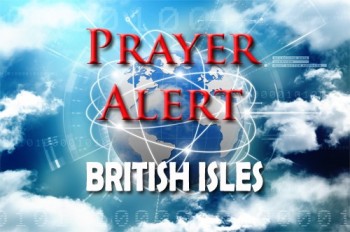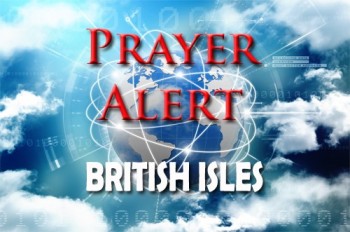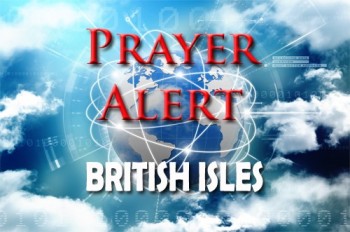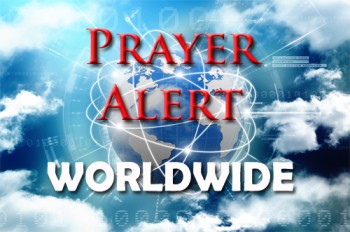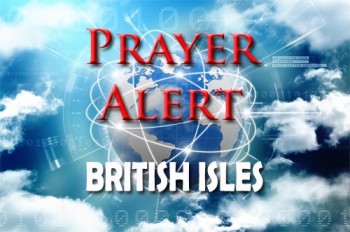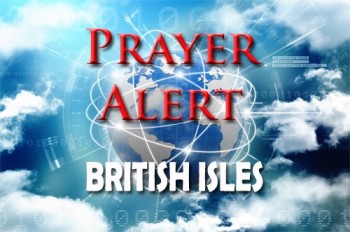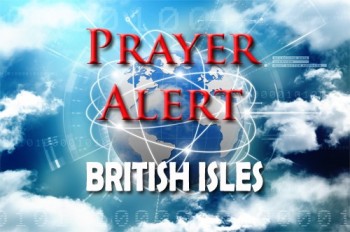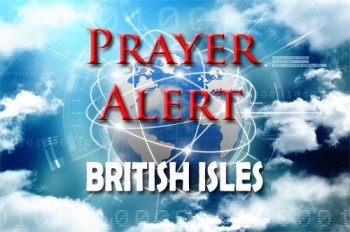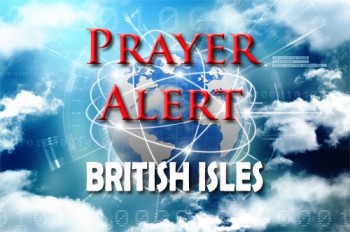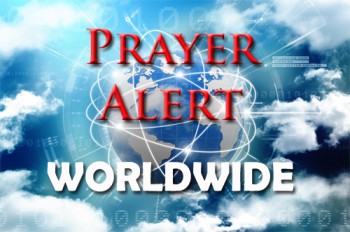Displaying items by tag: Religion
Evangelism and General Synod
Evangelism will be the ‘clear theme’ of the CofE General Synod, which meets from 20 to 23 February. A new evangelism report states that ‘focused efforts will be needed to multiply and replicate confident disciples who are equipped and released to live out their faith in the whole of their lives’. The report quotes Dr Michael Jinkins, of Louisville Presbyterian Theological Seminary, on baptism: ‘We are soaked to the skin in the death of Christ. We trail wet footprints of the drenching wherever we go.’ It concludes, ‘We need to prioritise how we help people drip their wet footprints into the people and places of their lives, spreading the aroma of the knowledge of Christ everywhere.’ There is an aim to fulfil the vision to motivate and enable worshippers to move from church attendees to advocates and apprentices who are outward-looking and confident in their faith and church.
Parkfield School: controversy over curriculum
Birmingham Mail recently reported clashes between parents and Parkfield Community School over a pilot curriculum challenging homophobia in primary schools. The deputy head of Parkfield, Andrew Moffat, who is openly gay, created the programme. The parents’ objection was not his sexuality, but the curriculum, called ‘No Outsiders’. They feel it goes against their religious beliefs regarding homosexual relationships. The school is mainly attended by Muslim children. Moffat has a lot of support in local government, and was given an MBE for services to education equality and diversity. Tristan Chatfield, the cabinet member for social inclusion, has suggested the parents are simply misinformed about what the school is trying to do. On 7 February dozens of parents gathered outside the school gates to object to transsexualism being taught to primary-age children. See
619 new Bible translation projects in 2019
Wycliffe Associates is advancing Bible translation and has received requests to launch 619 translation projects worldwide, including groups in DRC, Indonesia, Papua New Guinea, and Nigeria. ‘When they hear that the entire New Testament can now be translated in just months through ground-breaking technology, they are astonished, and they plead for a chance,’ said Wycliffe’s CEO. Traditionally, translations of the New Testament into another language have taken as long as 25 to 30 years. Pray for God's protection over Bible translation workshops for mother-tongue speakers, and for adequate funding for technology resources. Pray for God to keep translators safe when working discreetly in places where Christians face intense persecution. To date, the organisation has installed 90 print-on-demand units in 31 countries. By God’s grace they have distributed 5,485 tablets in 67 countries so far.
UAE: signs of religious freedom?
An estimated 180,000 people attended mass with the Pope in Abu Dhabi, the capital of the United Arab Emirates, close to the birthplace of Islam. The crowds gathered to hear him just a day after he called on Christians and Muslim leaders to work together in the rejection of war. He spoke about how Christians should live, pointing out that Jesus came to serve and not be served. He went on to say Jesus lived in poverty in respect to things, but displayed wealth in love. He healed so many lives, but did not spare his own. In his speech to an audience consisting of Abu Dhabi's crown prince, hundreds of imams, muftis, ministers, and rabbis, the Pope warned that the future of humanity was at stake unless religions come together to resist the ‘logic of armed power.’ ‘We will either build the future together, or there will not be a future. God is with those who seek peace.’
Nationwide prayer for Christian unity and the political situation
From 20 January, Churches Together in Britain and Ireland (CTBI) joined in a week of prayer for Christian unity and dedicated prayer for the political situation in the UK. CTBI said, ‘This is a time in which many feel anger and anxiety over the future, and we need to pray that those who have the heavy burden of political leadership in our country may find a unity that brings our communities together in the task of serving the common good.’ Archbishop John Sentamu has encouraged everyone to pray three times a day, at 6am, 12 noon, and 6pm. He has written a special prayer to use: see
Parliamentary prayers argument
Conservative MP Crispin Blunt has tabled a motion for the tradition of saying prayers at the beginning of parliamentary business to be abolished. This call comes with the backing of eight other MPs and the National Secular Society (NSS). Mr Blunt, an honorary associate of NSS, stated on its website, ‘Whilst religious worship occupies a strong part in some people's lives, it should no longer play a role in the way we conduct our political affairs as an independent, open and diverse nation’. The House of Commons’ main daily prayer, first used in 1558, asks for God’s guidance so that MPs ‘never lead the nation wrongly through love of power, desire to please, or unworthy ideals’. Keith Vaz suggested an amendment to Blunt’s motion, resulting in the bill saying the opposite of its author’s intention: see
Violence against clergy
Among CofE clergy, one in ten have experienced violent behaviour in the last two years, and the same percentage are experiencing more hate crime than they did two years ago. Over 66% have received verbal abuse and one in five has experienced threatening behaviour. Most threats were to harm the cleric personally, but 20% had relatives threatened and 35% experienced threats to church property. 25% of cases were because they declined to give money to someone who asked them for it. Clergy who have suffered violence are likely to find their work ‘more challenging’ than they did previously. This situation has necessitated National Churchwatch to produce a personal attack alarm for clergy; it looks like an ID badge, but has a button on the back to press if they feel at risk or needs assistance. The button connects immediately to a control room which can monitor what is going on and call the police if necessary. See
Anti-Christian bias in government commission
Voice for Justice researchers note that some members of a new commission, whose task is to study extremism and report back to the Government, hold Christophobic and hostile views. The Commission for Countering Extremism will soon publish a wide-ranging study on ‘all forms of extremism’ that will include its scale, the tactics and objectives of extremists, the harm caused, and the nature of current response. It is an independent and impartial public body, and commissioners must ‘not participate in the discussion or determination of a matter where their interest might suggest a danger of bias’. However three members have publicly expressed views that place them in clear conflict with Government guidelines. Sara Khan: ‘If Christians must celebrate same-sex relationships, then atheists must celebrate Jesus Christ’; Peter Tatchell: ‘Menacing Christians are put in the same category as IS and Taliban’; Dame Louise Casey: ‘Pro-abortion and pro-LGBT relationships are tests of integration; Bible-believing Christians are less progressive.’
Scotland: evangelism
The Turning mission last August involved teams from many churches going out on the streets and sharing the gospel. This will start again on 2 February in Aberdeen, Edinburgh, and Glasgow, and will continue on the first Saturday each month, with churches sharing the Gospel and seeing people come to Christ. Last year, approximately 300 people made a commitment to the Christian faith. Plans are also being made for a further round of ‘Leaders Envisioning’ meetings in late February, aiming for new missions in August as The Turning is rolled out across Scotland. Organisers have also produced The Turning Bible which helps those who have responded on the streets to understand the Word of God as they begin their journey of faith. This version is easy to read and understand, using everyday language, and is perfect for reading aloud. See
Global: Christian persecution rising
Figures for the persecution of Christians have shown a 'shocking increase', by 13.9% according to Open Doors World Watch List 2019. Asia has a sharp rise. China rose 16 places to number 27, with new laws to control all expressions of religion. Some church leaders say it is the worst since the Cultural Revolution ended in 1976. India, the world's largest democracy, is now number 10 on the list. Hindu extremists act with impunity, violently attacking Christians and churches and non-Hindu religious minorities. Rising nationalism is leading to persecution in Bhutan, Myanmar and Nepal, where national identity is tied to religion and those from minority faiths are considered outcasts. Persecution in North Korea has been worse than any other country for the last 18 years. In the north and middle of Nigeria, 3,700 Christians were killed for their faith - almost twice as many as the previous year.
